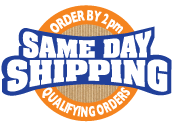Since the Final Rule went into effect June of 2023 and the revised regulations were published, we have fielded a lot of calls and emails from customers asking training related questions around DOT oral fluid testing. In this article, we will address the most prevalent questions.
Who can train on DOT oral fluid collections?
The DOT requires anyone conducting a DOT oral fluid test to be trained on the regulations and the oral fluid collections device they plan to use and complete 5 error-free mock tests. But DOT oral fluid testing is new and hasn’t been rolled out. So, who can provide training on this new testing method?
The regulations are straightforward on this in paragraph 40.35. “Another person must monitor and evaluate the trainee of their performance between the trainee and qualified collector and must attest in writing that the mock collections are “error-free. This person must be a qualified collector who has demonstrated necessary knowledge, skills, and abilities by; Regularly conducting DOT drug test collections for a period of at least one year; Conducting collector training under Part 40 for at least one year; or Successfully completing a “train the trainer” course.”
The regulations do not specify that the qualified collector must demonstrate knowledge, skills and abilities of either “oral fluid and/or urine” collections. It only states that they must be a qualified collector by demonstrating at least one of the three listed requirements.
ODAPC’s Bohdan Baczara recently confirmed this at the annual SAPAA conference by stating, “you are still a qualified collector if you meet at least one of the 3 criteria stated in 40.35.”
In short, anyone meeting any of these criteria may train others to perform DOT oral fluid Collections.
Do I have to take a Train-the-Trainer or Instructor course to train others?
In short, “No”. If you meet the criteria outlined above you do not need to take a Train-the-Trainer or Instructor training course to train and certify others to perform DOT oral fluid specimen collections. However, as an instructor you must be prepared to cover the 49 CFR, Part 40 regulations around oral fluid collections with your trainees and must know the specific 5 mock collections to conduct. You must also be able to document how and when training was administered, produce training resources or instructional materials, and the student CCFs for the 5 error-free mock collections.
Look for an instructor course that provides comprehensive instructor materials, resources and documents needed to train others as specimen collectors, including guidance on the required 5 error-free mock collections. This information is vital if your company is ever audited, and training documentation is requested as a part of that audit.
Do I have to join or be a member of an industry association such as SAPAA or NDASA to take an instructor or collector course?
Despite some of the training promotions and blog articles out there, you do not have to belong to any trade organizations to enroll in an oral fluid specimen collector or specimen collector instructor course. Another misconception around training is the duration a certificate of completion is active. The DOT regulations are very clear that once you complete “Procedural Training” on 49 CFR, Part 40 regulations and “Proficiency Training” including device training and the completion of the 5 error-free mock collections, you do not have to take refresher training for another 5 years, which means any reputable training provider will make your training certificate good for the full 5 years. Any claim that you should renew your certificate annually or every other year is nothing more than a marketing ploy.
Where do I get training and when should I start that training?
A reputable company will offer training in a variety of ways, such as online, classroom or even on-site training depending upon the number of students at a given company. Currently all indicators point to Q1 or Q2 2025 for lab and device approvals. If that timeframe continues to hold, we recommend starting training efforts in the middle or end of Q1 so that your collectors are fully trained and ready to go as close as possible to the go-live date. Training months or even years before the implementation of DOT oral fluid testing is unnecessary and may lead to difficulties in retaining the information when the actual procedures are finally put in place.

